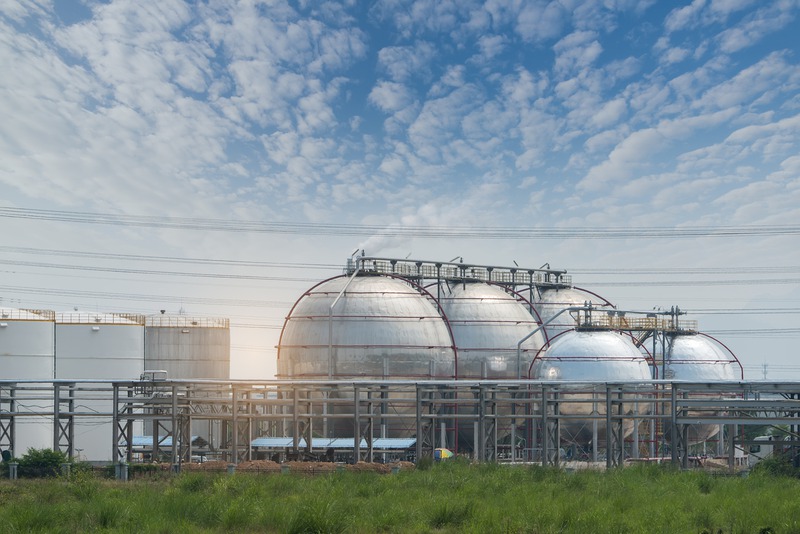The use of liquefied natural gas (LNG) has gained momentum in recent years, capturing the attention of industries across the globe. This cleanest burning fossil fuel is transforming how energy is produced and consumed. But why is LNG the talk of the town? Let’s explore the myriad benefits it offers that make it a compelling choice for so many applications.
Cleaner Energy Option
LNG stands out for its environmental credentials. It burns cleaner than other fossil fuels like coal and oil, meaning it produces less pollution and greenhouse gas emissions. When considering cleaner energy options, LNG is often at the forefront because it helps in reducing carbon footprints, a critical aspect in today’s world where climate change is a significant concern. Businesses aiming to improve their sustainability record can turn to LNG as a viable solution.
Enhanced Efficiency and Performance
One cannot overlook the efficiency benefits of liquefied natural gas (LNG). Converting natural gas to LNG by cooling it to -162 degrees Celsius (-260 degrees Fahrenheit) shrinks its volume by approximately 600 times, thereby enabling more energy to be transported in less space. The emphasis on efficiency doesn’t end there; LNG also delivers a higher energy content compared to other fuels, which translates into greater performance for the end-users.
-
LNG requires less space for storage compared to other energy sources.
-
Transportation of LNG is more cost-effective due to its condensed volume.
-
Higher energy content ensures that users get more power out of less fuel.
Transportation and Storage Advantages
The reduced volume of LNG not only makes it an efficient carrier of energy but also eases the challenges associated with storage and transportation. Unlike pipeline-dependent natural gas, LNG can be shipped globally using specialized LNG carriers, making it accessible even to remote areas. Its transportability, coupled with its storage convenience, widens its reach to various markets and gives suppliers more flexibility in managing supply and demand.
-
LNG can be easily shipped across oceans, reaching a global market.
-
It offers a solution for energy supply to areas without pipeline infrastructure.
In addition to the points above, specialists in energy products, like these CPC products, recognize that transportable fuels are essential for providing flexible energy solutions. LNG’s unique properties make it easy to store and dispense, an aspect highly valued in today’s ever-changing demand for energy.
Securing Energy Reliability and Independence
Ensuring a reliable energy supply is crucial for any country’s economic stability and energy independence. LNG diversifies the energy mix and lessens dependence on imported oil or volatile sources. By having a steady LNG supply, countries are reassured of their energy security, buffering them against unpredictable energy market shifts and political tensions that might otherwise affect their energy sources.
Economic Opportunities and Job Creation
The rise of LNG has spurred economic growth and job creation in many regions. The entire LNG value chain, from production to shipping, requires significant investment and manpower. This creates a ripple effect of economic activity that supports communities and contributes positively to a country’s GDP. Additionally, domestic LNG production can reduce foreign energy expenditures and keep more capital within the local economy.
Responding to Peak Energy Demands
LNG has an important role to play in meeting peak energy demands, whether due to cold winters, hot summers, or rapid industrial growth. Power plants can stock LNG and convert it back to gas to meet these high demands, a process that is faster than developing new infrastructure. The flexibility and storage capability of LNG ensure a responsive energy system that is adaptable to both seasonal changes and unexpected energy needs.
Supporting Cleaner Industries and Transportation
LNG is not just changing the game in energy production but also in industrial processes and transportation. As industries seek to reduce emissions, LNG becomes an attractive alternative for heavy-duty vehicles, marine transport, and industrial fuel. This switch can drastically cut down on pollutants such as sulfur oxides, making the transportation sector and industrial operations much cleaner.
Being one of the most versatile and cleanest fuels available, LNG finds usage across multiple industries, earning the support of refrigerant gas suppliers and other industrial sectors concerned with environmental compliance and performance optimization.
Enhancing Energy Choice and Competition
With more countries adopting LNG, it augments the assortment of energy resources available in the market, leading to healthier competition. Increased competition can drive innovation, result in more energy options for consumers, and potentially lower energy costs over time. It ensures that consumer needs are met efficiently and affordably, strengthening the market dynamics.
-
LNG amplifies supply diversity, ultimately benefiting consumers.
-
Competitive energy markets can lead to reduced prices and innovation.
To End
The remarkable benefits of LNG encompass environmental sustainability, economic uplift, and assured energy security, making it an essential component in the quest for clean and reliable energy. Its role as a bridge fuel towards a more renewable-centric future is indispensable. As countries and industries rally behind the virtues of liquefied natural gas, its potential to power a brighter and cleaner tomorrow becomes ever more evident.




